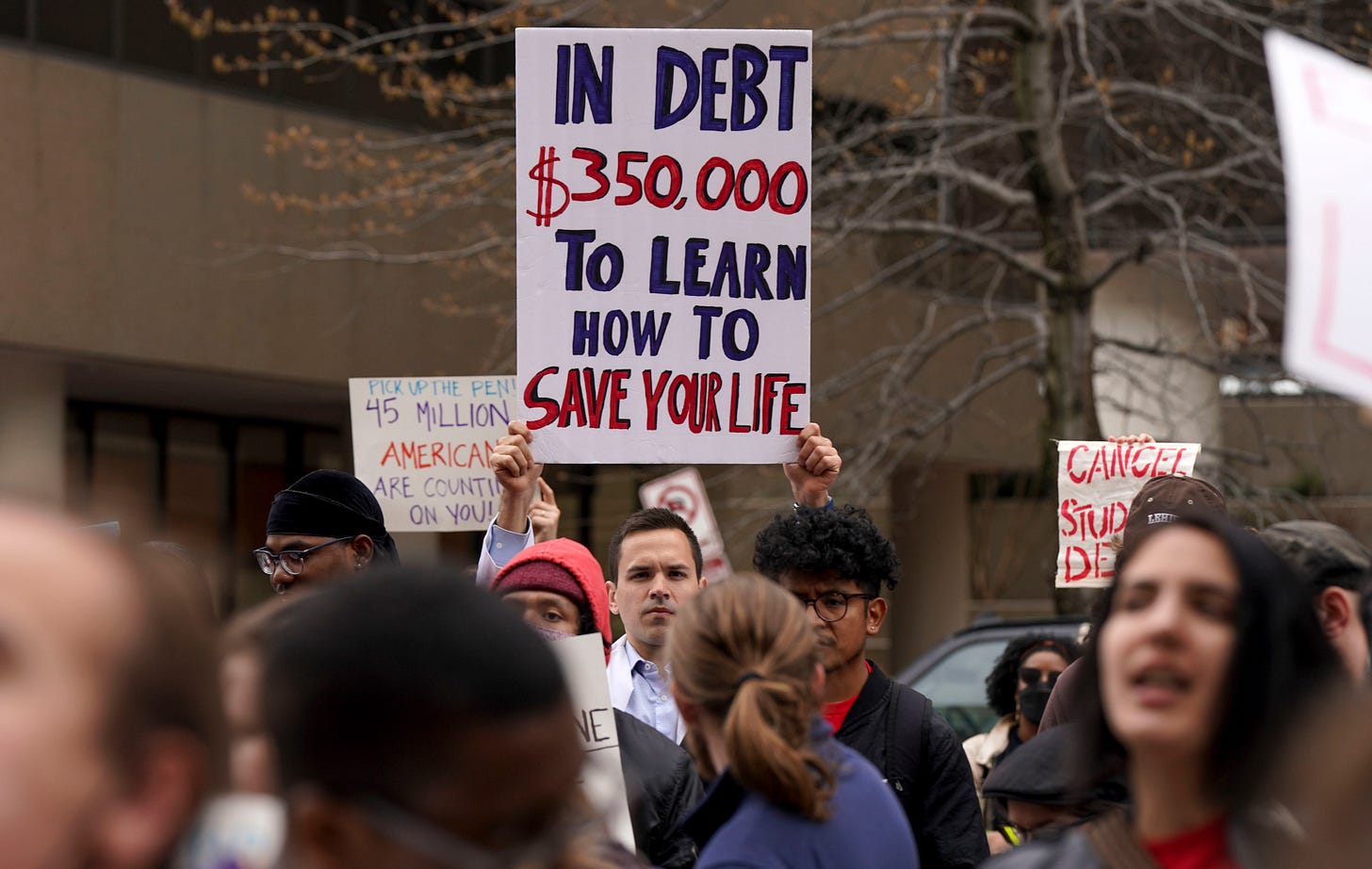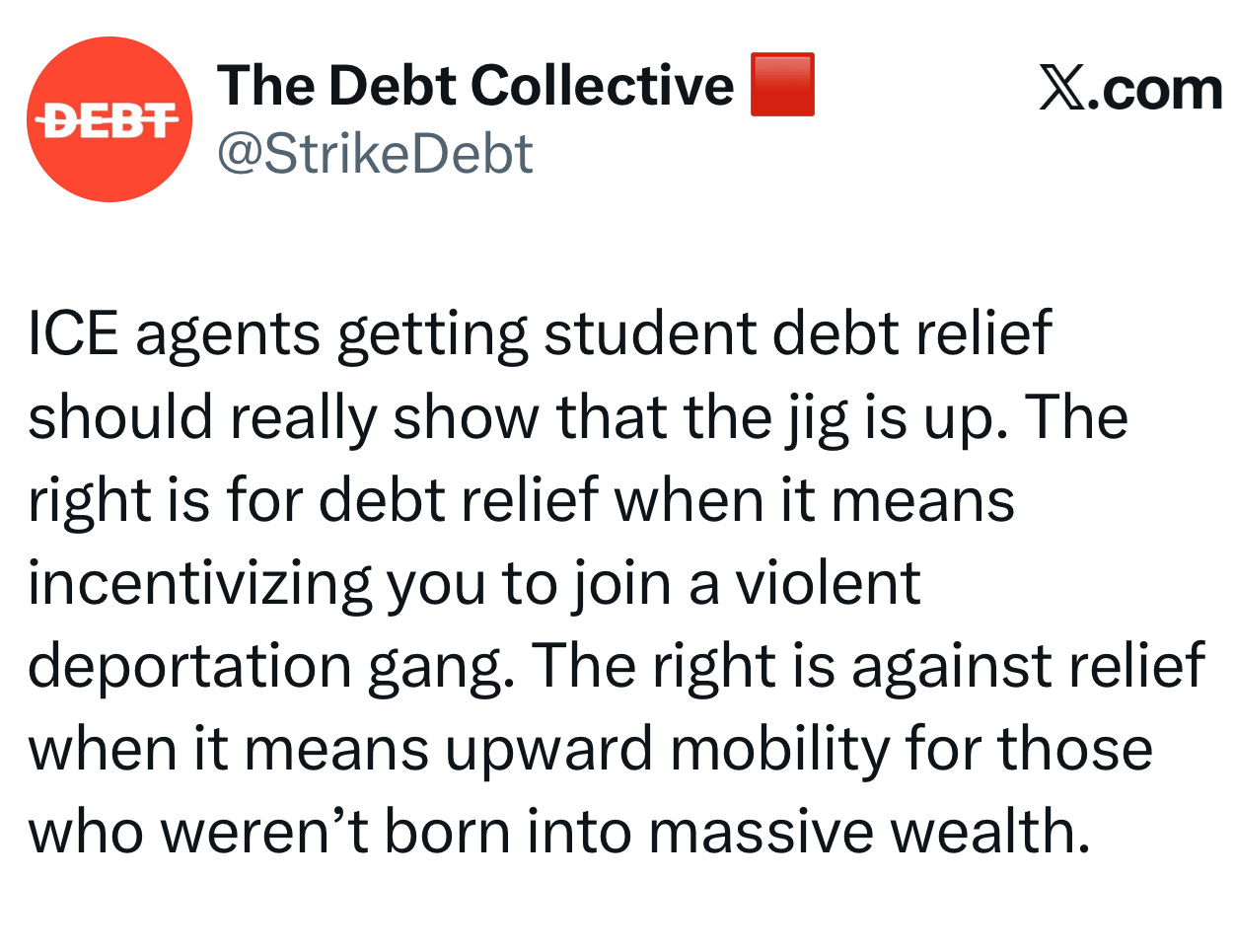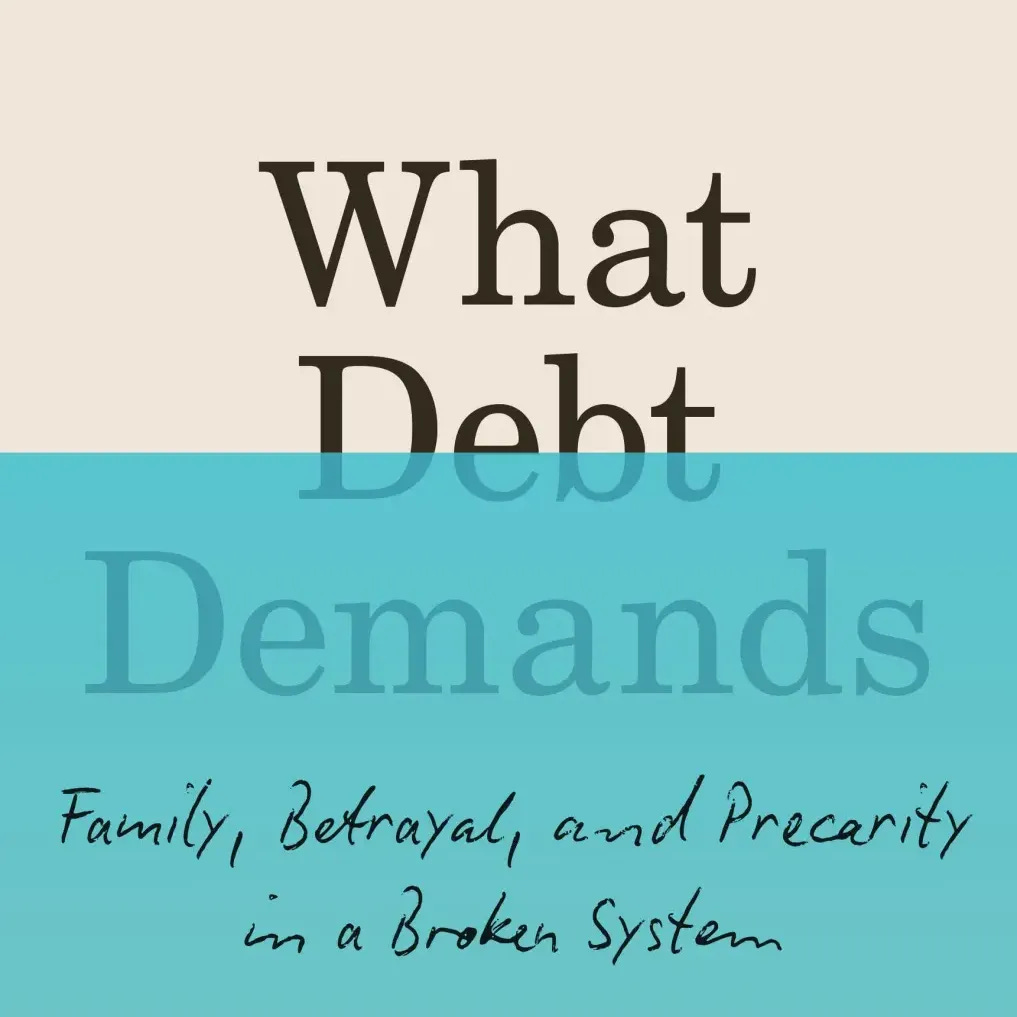From Shame to Solidarity!
Tips for Writing Your Debt Story (and more) from Jubilee School
Debt isn’t merely about money. It is also deeply psychological.

Unjust debt—debt related to what should be public goods like education, healthcare, housing, etc—is often weaponized as a tool of social control. For example, ICE is currently offering debt relief and six-figure sign-on bonuses to new recruits. All they have to do is disappear their neighbors and wreak havoc on communities across the country. The state knows that debt relief sets us free, so they’re only offering it to those willing to carry out their fascist agenda.
Meanwhile, public school teachers graduate from college owing an average of nearly $60,000 in student debt, and many of them go on to earn at or below the minimum wage. What this tells us is unjust debt isn’t simply demoralizing—it’s strategic.
Conservatives have spent decades weaving harmful narratives that blame working class borrowers for drowning in debt and demonize college for all as a concept. What happens is many Americans begin to internalize the message that labor to uplift people and the planet isn’t “valuable,” or that a well-rounded education is simply a “scam.”
The complete opposite is true.
Quality education is one of the most powerful tools we have against authoritarianism.
Literacy, emotional intelligence, and critical thinking skills are life-changing—inviting us to question, imagine better worlds, and organize to actualize those worlds. The right-wing’s relentless attacks on K-12 public schools, colleges, and libraries actually signals that an educated working class is a threat to the ruling class.
Education is profoundly important for liberation.
That’s precisely why one of Debt Collective’s founders, Jason Wozniak, first launched Jubilee School, a free political-education series featuring Debt Collective organizers and our allies.

We’re one week into our Fall semester, and the energy has been incredible!
Our movement was born from conversations like the early debtors’ assemblies during Occupy Wall Street. These were spaces where people revealed they were in the red.
And the Jubilee School workshops featured below explored this foundational practice of our organizing: writing and sharing debt stories to making revolution irresistible.
Nick Marcil and Kristin Collier provided helpful frameworks for storytelling that empower debtors to transform their shame into solidarity. You can watch both of these useful workshops below.
Let us know what you think. Did you learn anything new?
Writing Your Debt Story Part 1
Writing Your Debt Story Part II
And check out Kristin Collier’s amazing new book while you’re at it!
The recent Jubilee school sessions also featured a workshop on making revolution irresistible with Maddy Clifford—a session that offered creative tactics for weaving art and imagination into organizing work. In this session, Maddy also shared practical tips and exercises around the distinction between stories, narratives and what can make our organizing more creative and engaging.
Remember, this is just the beginning of our learning journey.
Don’t miss out on our next round of Jubilee School courses:
RSVP for all sessions, invite a friend, and join the conversation.
Quality, public and reparative education opens the door for liberation.
Jubilee School is a place where we learn, grow and demand debt abolition.
See you there!
In Solidarity,
Debt Collective





Thanks for these classes! As a disabled chronically ill woman, I’m deep in the red for healthcare and insurance costs. We are not alone. It’s the damn system!
Jubilee School has been transformational. I just heard David Graeber reference the King’s Jubilee of debt forgiveness wiping the slate clean for merchants and consumers and realized where the name came from. Thanks for working tirelessly to bring us life-altering free political education. (Democracy Now interview - Sept 4 2020)